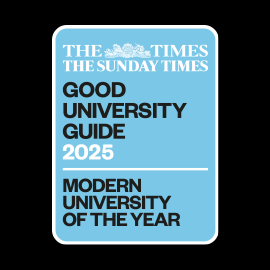-
Study
-
Quick Links
- Open Days & Events
- Real-World Learning
- Unlock Your Potential
- Tuition Fees, Funding & Scholarships
- January Study
- Real World Learning
-
Undergraduate
- Application Guides
- UCAS Exhibitions
- Extended Degrees
- School & College Outreach
- Information for Parents
-
Postgraduate
- Application Guide
- Postgraduate Research Degrees
- Flexible Learning
- Change Direction
- Register your Interest
-
Student Life
- Students' Union
- The Hub - Student Blog
- Accommodation
- Northumbria Sport
- Support for Students
-
Learning Experience
- Real-World Learning
- Research-enriched learning
- Graduate Futures
- The Business Clinic
- Study Abroad
-
-
International
International
Northumbria’s global footprint touches every continent across the world, through our global partnerships across 17 institutions in 10 countries, to our 277,000 strong alumni community and 150 recruitment partners – we prepare our students for the challenges of tomorrow. Discover more about how to join Northumbria’s global family or our partnerships.
View our Global Footprint-
Quick Links
- Course Search
- Undergraduate Study
- Postgraduate Study
- Information for Parents
- London Campus
- Northumbria Pathway
- Cost of Living
- Sign up for Information
-
International Students
- Information for International Students
- Northumbria and your Country
- International Events
- Application Guide
- Entry Requirements and Education Country Agents
- Global Offices
- English Requirements
- English Language Centre
- International student support
- Cost of Living
-
International Fees and Funding
- International Undergraduate Fees
- International Undergraduate Funding
- International Masters Fees
- International Masters Funding
- International Postgraduate Research Fees
- International Postgraduate Research Funding
-
International Partners
- Agent and Representatives Network
- Global Partnerships
- Global Community
-
International Mobility
- Study Abroad
- Information for Incoming Exchange Students
-
-
Business
Business
The world is changing faster than ever before. The future is there to be won by organisations who find ways to turn today's possibilities into tomorrows competitive edge. In a connected world, collaboration can be the key to success.
More on our Business Services-
Business Quick Links
- Contact Us
- Business Events
- Research and Consultancy
- Education and Training
- Workforce Development Courses
- Join our mailing list
-
Education and Training
- Higher and Degree Apprenticeships
- Continuing Professional Development
- Apprenticeship Fees & Funding
- Apprenticeship FAQs
- How to Develop an Apprentice
- Apprenticeship Vacancies
- Enquire Now
-
Research and Consultancy
- Space
- Energy
- AI and Tech
- CHASE: Centre for Health and Social Equity
- NESST
-
-
Research
Research
Northumbria is a research-rich, business-focused, professional university with a global reputation for academic quality. We conduct ground-breaking research that is responsive to the science & technology, health & well being, economic and social and arts & cultural needs for the communities
Discover more about our Research-
Quick Links
- Research Peaks of Excellence
- Academic Departments
- Research Staff
- Postgraduate Research Studentships
- Research Events
-
Research at Northumbria
- Interdisciplinary Research Themes
- Research Impact
- REF
- Partners and Collaborators
-
Support for Researchers
- Research and Innovation Services Staff
- Researcher Development and Training
- Ethics, Integrity, and Trusted Research
- University Library
- Vice Chancellors Fellows
-
Research Degrees
- Postgraduate Research Overview
- Doctoral Training Partnerships and Centres
- Academic Departments
-
Research Culture
- Research Culture
- Research Culture Action Plan
- Concordats and Commitments
-
-
About Us
-
About Northumbria
- Our Strategy
- Our Staff
- Our Schools
- Place and Partnerships
- Leadership & Governance
- University Services
- Northumbria History
- Contact us
- Online Shop
-
-
Alumni
Alumni
Northumbria University is renowned for the calibre of its business-ready graduates. Our alumni network has over 250,000 graduates based in 178 countries worldwide in a range of sectors, our alumni are making a real impact on the world.
Our Alumni - Work For Us
What will I learn on this module?
You will learn about how organisations select and assess employees in the workplace. As you examine the range of approaches that are adopted by organisations, you will be able to understand how they are utilised most effectively. Topics include: effective use of job analysis, the use of psychometric tests such as cognitive ability and personality tests, and the design and scoring of job interviews and assessment centres.
How will I learn on this module?
You will learn through seminars, e-learning and independent learning. The workshops will examine case-studies and problems based on real world situations relevant to the areas of employee selection and assessment (such as employment interviews, cognitive ability tests, competency frameworks and job analysis). This will allow you to apply the knowledge that you have developed on key topics and reflect on the subject information. Case-studies and problems will be examined in small groups where you will have the opportunity to discuss different approaches with peers. The use of discussion groups will ensure that material is applied in nature, drawing upon evidence to improve selection and assessment.
In preparation for these sessions you will complete pre-reading and engage with pre-recorded lectures. You will develop background knowledge and understanding of key literature related to the weekly topic. This is supported by the e-learning portal, pre-recorded lectures, podcasts and pre-reading outlined in the electronic reading list.
A part of the learning on this module is online delivery or self-directed learning. Tutor guidance throughout the module will also orient learning to support reflection and consolidation.
How will I be supported academically on this module?
Support will include feedback from tutors during small-group seminars and tutorials. In particular, tutors will support you in adapting to the learning approach and consolidation of knowledge throughout the module and how it relates to other modules within the programme. In addition, tutors will respond to questions via the module’s discussion board on the University’s eLearning Portal so that the whole group can benefit.
What will I be expected to read on this module?
All modules at Northumbria include a range of reading materials that students are expected to engage with. Online reading lists (provided after enrolment) give you access to your reading material for your modules. The Library works in partnership with your module tutors to ensure you have access to the material that you need.
What will I be expected to achieve?
You will be expected to
MKU1: Critically evaluate the research evidence in employee selection and assessment (e.g., on different types of interviews, psychometric properties of various selection tools)
MKU2: You will be able to design and deliver a variety of employee selection interventions
MKU3: You will be able to evaluate the challenges of designing and implementing various selection tools in organisations
Intellectual / Professional Skills & Abilities:
Personal Values Attributes (Global / Cultural awareness, Ethics, Curiosity) (PVA):
MPVA 1: You will also develop and reflect on a number of ethical and professional issues (including your own skills) in relation to employee selection and assessment.
How will I be assessed?
Formative assessment:
You will participate in group activities and one to one work where you will apply the skills learned as part of the module. Examples include presentations and your contribution to case-study problems. Feedback will be provided verbally by the module tutor on your skills development and peer feedback will be encouraged as part of the process. Self-assessment and reflection will also be encouraged.
Where appropriate feedback will also be provided by the module tutor to identify ways to support professional development (MKU 1, MKU2, MKU 3; MPVA 1).
Summative Assessment:
You will be required to produce a 4000 word report that includes a literature review on an area of employee selection and assessment and identifies gaps in the research. You will then describe a study to address the evidence gap and outline ethical, professional and practical issues you may face. Both individual and cohort written feedback will be provided. (MKU1, MKU2, MKU3, and MPVA 1).
Pre-requisite(s)
N/A
Co-requisite(s)
N/A
Module abstract
This module aims to provide you with a comprehensive understanding of how organisations select and assess their employees. You will learn about the theory, research and practice related to various approaches to employee selection and assessment, and will evaluate the validity, reliability, fairness and overall effectiveness of these methods. Academic literature and case-studies will be discussed, and activities will focus on organisational problems. Completion of the module will provide you with key skills in employee selection and assessment that are directly relevant to future employment in areas such as occupational psychology, human resource management and organisational development.
Course info
Credits 20
Level of Study Postgraduate
Mode of Study 28 months Part Time
2 other options available
School Psychology
Location City Campus, Northumbria University
City Newcastle
Start September 2026
All information is accurate at the time of sharing.
Full time Courses are primarily delivered via on-campus face to face learning but could include elements of online learning. Most courses run as planned and as promoted on our website and via our marketing materials, but if there are any substantial changes (as determined by the Competition and Markets Authority) to a course or there is the potential that course may be withdrawn, we will notify all affected applicants as soon as possible with advice and guidance regarding their options. It is also important to be aware that optional modules listed on course pages may be subject to change depending on uptake numbers each year.
Contact time is subject to increase or decrease in line with possible restrictions imposed by the government or the University in the interest of maintaining the health and safety and wellbeing of students, staff, and visitors if this is deemed necessary in future.
Useful Links
Find out about our distinctive approach at
www.northumbria.ac.uk/exp
Admissions Terms and Conditions
northumbria.ac.uk/terms
Fees and Funding
northumbria.ac.uk/fees
Admissions Policy
northumbria.ac.uk/adpolicy
Admissions Complaints Policy
northumbria.ac.uk/complaints










.png?modified=20251118133403)



